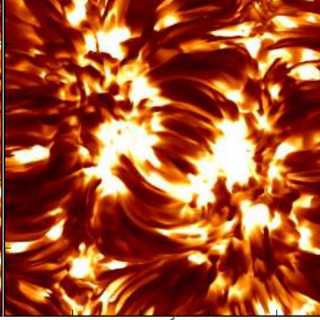Bibcode
Belluzzi, L.; Trujillo-Bueno, J.; Štěpán, Jiří
Referencia bibliográfica
The Astrophysical Journal Letters, Volume 755, Issue 1, article id. L2 (2012).
Fecha de publicación:
8
2012
Número de citas
41
Número de citas referidas
34
Descripción
Recent theoretical investigations have pointed out that the cores of the
Lyα lines of H I and He II should show measurable scattering
polarization signals when observing the solar disk, and that the
magnetic sensitivity, through the Hanle effect, of such linear
polarization signals is suitable for exploring the magnetism of the
solar transition region. Such investigations were carried out in the
limit of complete frequency redistribution (CRD) and neglecting quantum
interference between the two upper J-levels of each line. Here we relax
both approximations and show that the joint action of partial frequency
redistribution and J-state interference produces much more complex
fractional linear polarization (Q/I) profiles, with large amplitudes in
their wings. Such wing polarization signals turn out to be very
sensitive to the temperature structure of the atmospheric model, so that
they can be exploited for constraining the thermal properties of the
solar chromosphere. Finally, we show that the approximation of CRD
without J-state interference is however suitable for estimating the
amplitude of the linear polarization signals in the core of the lines,
where the Hanle effect operates.
Proyectos relacionados

Magnetismo, Polarización y Transferencia Radiativa en Astrofísica
Los campos magnéticos están presentes en todos los plasmas astrofísicos y controlan la mayor parte de la variabilidad que se observa en el Universo a escalas temporales intermedias. Se encuentran en estrellas, a lo largo de todo el diagrama de Hertzsprung-Russell, en galaxias, e incluso quizás en el medio intergaláctico. La polarización de la luz
Tanausú del
Pino Alemán